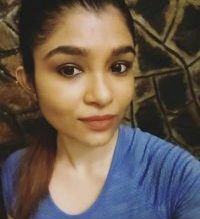
Sleep issues are becoming more common all over the globe. So, the idea of being able to improve your sleep with the help of tea would be welcome to many people. Of course, you need to select your teas carefully, to make sure you reap all the benefits.
If you would like some help figuring out which teas to stock up on, then this is the guide for you. Here is everything you need to know about the subject.
Contents
As you may be aware, teas can be classified as either true teas or herbal teas. True teas are sourced from the Camellia sinensis plant. Herbal teas, on the other hand, are made from other types of botanicals. As such, they are considered to be more tisanes than actual tea.
Nevertheless, for sleep, you should always select herbal teas over true teas. This is because all true teas have some caffeine in them. Sure, white and green teas have minimal amounts, but they still contain this ingredient. As such, true teas aren’t all that helpful in inducing sleep.
Herbal teas, however, are sourced from plants that don’t contain any caffeine in them. Due to this, they are safe to consume at bedtime. This doesn’t mean, though, that all herbal teas can instigate sleep. The exact teas will be discussed in a section below.
Related Article
Tea for Allergies: The Best Brews to Cure Your Sniffles
These days, there are plenty of sleep remedies available on the market. So, with all of these, why should you turn to teas and herbs for sleep? Well, the simplest answer is that herbal teas are completely natural. There are made from the flowers, leaves, stems, and roots of plants.
They don’t contain any potent or harmful agents. Due to this, they are much safer for you. What's more, it is unlikely that you will suffer from side effects such as grogginess or haziness that is typical of other sleeping draughts.
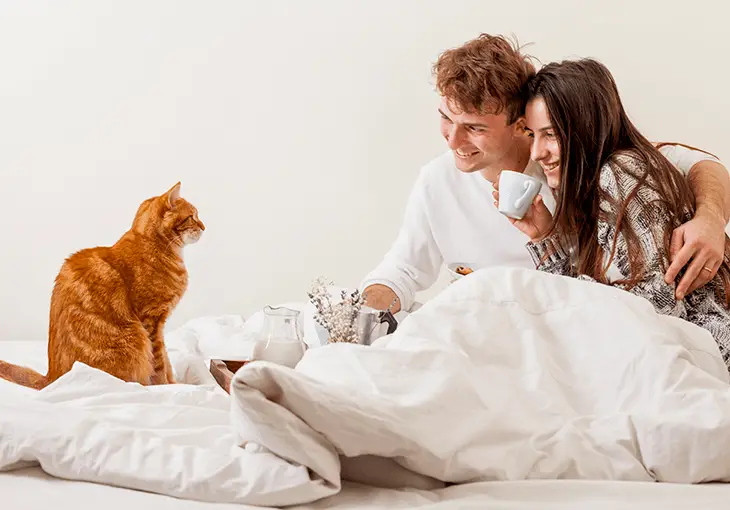
You can now find numerous ‘sleep teas’ on the market. Most of these contain a mix of herbs for insomnia and other sleep issues. So, are they as good as individual herbal teas that you can brew yourself? Well, that depends.
To begin with, you should only buy these sleep teas if they contain all-natural ingredients. Stay away from products that contain additives, flavorings, colorings, or any other artificial ingredient. These can take away from the nutrient content of the teas and even result in certain side effects.
There is also the fact that certain herbs can impact each individual differently. So, while a particular herb may help one person to fall asleep, it may have the opposite effect on someone else. Thus, if your preferred sleep tea contains a herb that will keep you wired, then it will be of little use to you.
The takeaway here is that sleep teas aren’t necessarily bad. However, if you are planning on buying one, make sure that it will be just as useful to you – if not more – as a regular herbal brew.
Now let’s help you find your best tea for sleep:
When most people think of teas for sleep, chamomile is the first thing that pops into their minds. Most people swear by the sedation-like effects of this brew. So, does the scientific evidence actually back up the chamomile tea sleep relationship?
Well, it would appear that the results are a mixed bag. On the one hand, there are studies that suggest chamomile extract can reduce sleep latency. That is to say, it can help people fall asleep faster.
At the same time, when prescribed to people with insomnia, the extract appeared to have little positive impact. Due to this, the tea may not be useful for individuals with various sleep issues and disorders.
What has been proven, though, is that chamomile helps to reduce symptoms of anxiety. This is significant because there are many people who have trouble falling asleep during to worrisome thoughts. If this is something you suffer from, then you may find that chamomile tea will prove to be the best tea for sleep and anxiety.
Related Articles
Serenity with Every Sip: The Best Tea for Anxiety
Find Your Zen with the Best Chamomile Tea
If using dried flowers, add one tablespoon for every 8 ounces (236 ml) of water. In case you are using tea bags, add one tea bag per cup. Bring your water to a boil and then take it off the heat. Allow the flowers to steep for around 5 minutes and then strain the tea.
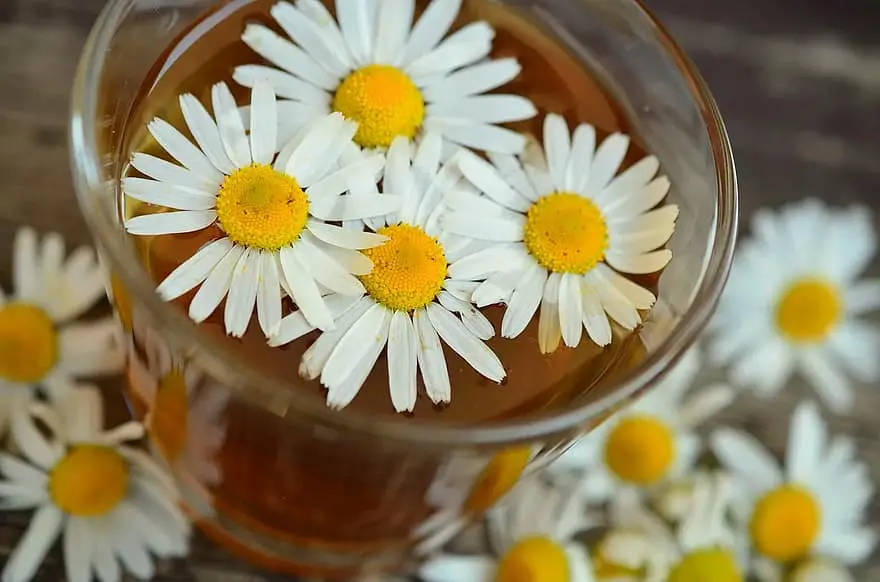
Another herb that is often associated with sleep is lavender. It can be found in a number of sleeping aids – from oils to candles. So, does this mean that sipping a cup of lavender tea can improve your general sleep quality?
There are some studies that show that inhalation of lavender oil can help to improve sleep quality. Women diagnosed with insomnia reported having much better sleep once they inhaled the scent of lavender on a regular basis.
However, there isn’t much research to show that this herb is directly responsible for sleep. Instead, what is notable is that lavender is excellent at reducing anxiety. As such, it has a calming effect that can help ease people into sleep.
For lavender tea, use 4 teaspoons for every 8 ounces (236 ml) of water. A single tea bag will do for the same amount of water. Once the water has boiled, allow the flowers to steep for around 10 minutes. Strain the drink and enjoy.
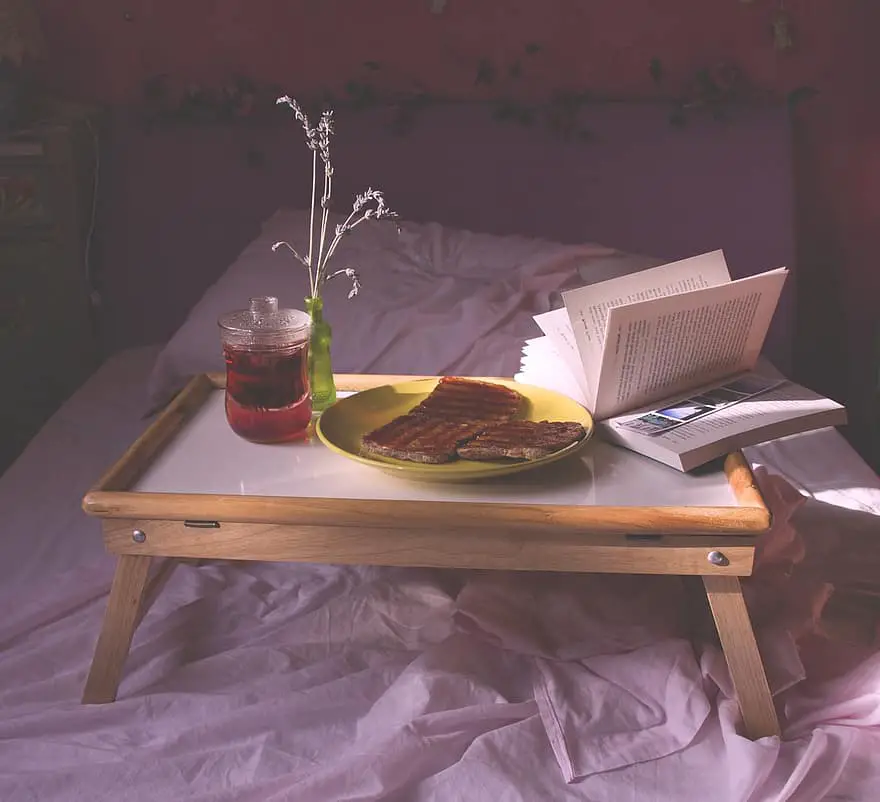
It would appear that valerian root has earned its title as a tea that helps you sleep. This is largely because scientific evidence backs up this plant’s capabilities. In one study conducted, it was found that valerian root helped people fall asleep faster.
There is even more good news. It appears that the plant actually offers natural effects that are on par with certain benzodiazepines when it comes to sleep. This, of course, is wonderful, as valerian root doesn’t produce the side effects associated with pharmaceutical sleep aids.
In case you are using tea bags, a single tea bag will do for every 8 ounces (236 ml) of water. To prepare the brew yourself, you can add 2 to 3 grams of dried root. The valerian root can be steeped in boiled water for 10 to 15 minutes.
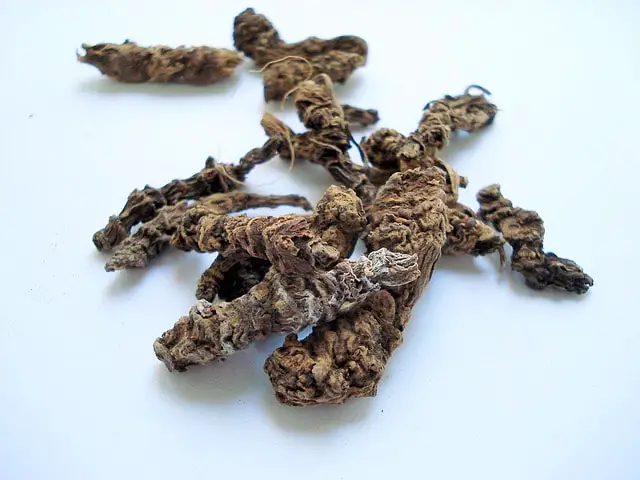
While there have been a number of animal studies on passionflower and sleep, there aren’t nearly enough human trials. Nevertheless, the results that were obtained have been quite positive. Most people who drank a cup of passionflower tea reported a much higher quality of sleep.
There is some evidence to support that when combined with valerian root and hops, passionflower can be as potent as chemical sleep aids. Thus, it can improve sleep issues across the board. This includes time taken to fall asleep, total sleep time, and uninterrupted sleep.
If you are using fresh passionflower leaves, stems, or flowers, then you can add one tablespoon to 8 ounces (236 ml) of boiled water. In case you are using dried ingredients, a teaspoon or so will do. You can allow the plant extract to steep for around five minutes.
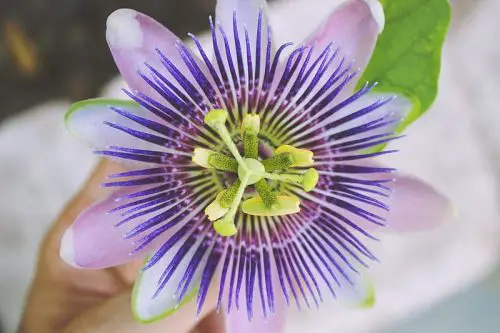
Lemon balm has been used by people for centuries to improve sleep quality. Unfortunately, the research done on the efficacy of this herb is not as extensive. Despite this, there may be some promising results.
It should be noted that most of the studies that measured sleep, used a combination of lemon balm and valerian root. When this preparation was used, a number of individuals reported that their sleep quality improved quite a bit.
Use 2 parts of lemon balm for ¼ parts of valerian root when brewing your tea. Allow the drink to steep in boiled water for 5 to 10 minutes. Strain and drink.
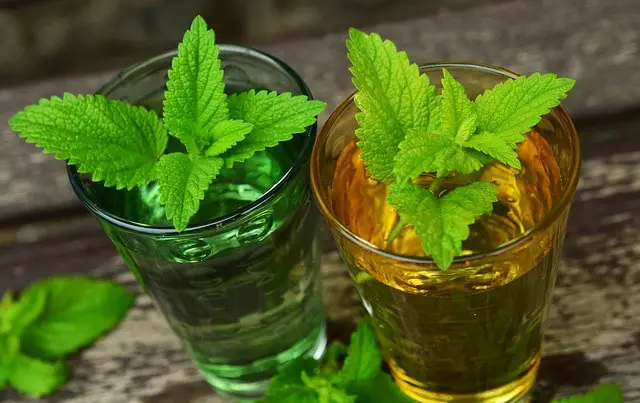
Magnolia bark is yet another plant that has been valued for its relaxing properties. Despite this, the only studies that examined its impact on sleep have been performed on animals. Based on this evidence, though, it appears that magnolia bark may be a great herb tea for sleeping.
Research on mice has shown that magnolia bark induces sleep via the same pathway as benzodiazepines. That is to say, it has the same impact on the GABA receptors in the brain as pharmaceutical sleep aids, without any of the side effects.
As such, magnolia bark has been proven to help people fall asleep faster. The lab results further show that the plant can increase non-REM sleep and reduce REM sleep while positively affecting sleep cycles as well.
With magnolia bark tea, it is best to buy readymade tea bags for safety and easy consumption. Follow the instructions provided with the particular type of tea you purchase.
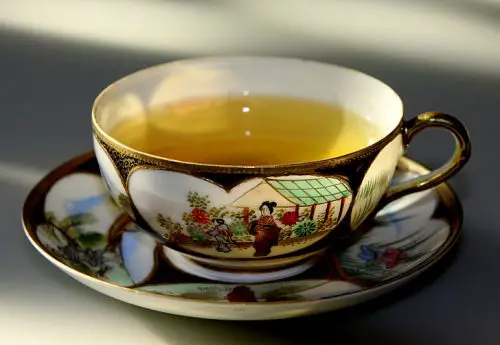
While natural herbal teas can be quite useful for improving sleep, you should always be careful when consuming these beverages. In particular, heed the following warnings:
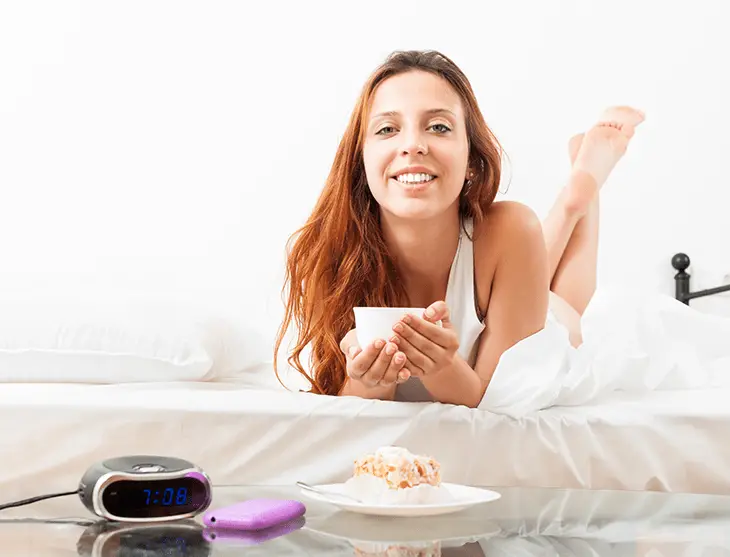
As mentioned, not all of the teas may be suitable. So, before you brew a certain tea before bed, follow these suggestions first.
Provided that you are not allergic to any of these herbs, make sure to try them one at a time. This will make it easier to determine which ones will actually help you sleep. It can help to keep notes on every experience. This includes information such as (rough) time to fall asleep, how often you wake up, and how you feel in the morning.
Once you have narrowed down the best teas for you, consider combining them. The overall brew may be more potent and could improve your sleep quality even further. When experimenting with new brews, always keep a track of the results and how you are feeling.
These are the main factors to consider when looking for a good tea to help you sleep. Based on this information, you can begin your journey to get better shuteye with the help of a delicious brew.
Want to know how different teas can improve your health and well-being even more? If so, check out our Pinterest page and find all the tips and secrets that you will need.
